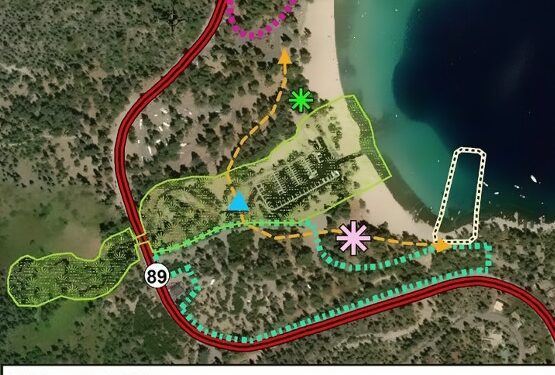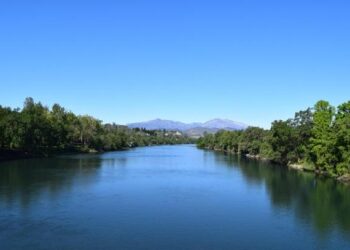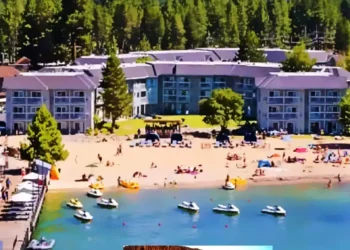SOUTH LAKE TAHOE, Calif. — In a significant move towards environmental restoration, the California Tahoe Conservancy Board has allocated a substantial $600 million grant to the USDA Forest Service Lake Tahoe Basin Management Unit (LTBMU). The funds are earmarked for forestry operations, forming a crucial component of the collaborative initiative with the Washoe Tribe of Nevada and California to rejuvenate Máyala Wáta, more commonly known as Meeks Meadow.
Restoring Cultural and Ecological Heritage
Máyala Wáta holds profound cultural significance for the Washoe Tribe, serving as a historical summer camp where traditional activities such as hunting, fishing, plant gathering, and ceremonies took place. Unfortunately, the ecological health of the meadow has suffered a decline since the era of European settlers, who displaced the Washoe from their homeland.
“This generous grant matched with federal funds allows us to move forward with vital restoration work needed to restore how the meadow functions in order to reach our goal of improving water quality and wildlife habitat in Meeks Meadow,” expressed LTBMU Forest Supervisor Erick Walker. The collaborative effort between the LTBMU and the Washoe Tribe seeks to address the detrimental impacts of cattle grazing, logging, and fire suppression that have plagued the meadow since the Washoe’s displacement.
Addressing Degradation and Enhancing Biodiversity
Historically, the Washoe people maintained the meadow through controlled low-intensity fires, promoting the growth of native plants and supporting game habitat. However, the absence of these fires has allowed lodgepole pines to encroach on the meadow, leading to soil drying and a decline in culturally significant plants.
The $600 million grant, matched by an additional $1 million in federal funds, will empower the LTBMU to undertake strategic measures. The plan includes the removal of encroaching conifers spanning 213 acres of the meadow and thinning 70 acres of the surrounding upland forest. These actions aim to restore the meadow’s functionality, promoting improved wildlife habitat and water quality filtration.
Holistic Restoration Approach
The Máyala Wáta Restoration Project goes beyond mere ecological revival. In tandem with forestry operations, the initiative supports Tribal crews in prescribed fire training, fostering a culturally guided approach to controlled burns. Tribal members, including elders and youth, will actively participate in planting culturally significant vegetation, removing invasive species, and safeguarding vital plants.
Furthermore, a previous Conservancy grant has facilitated the transportation of biomass resulting from forestry operations to the Tribe’s headquarters. This biomass will serve as firewood for Tribal members, aligning with sustainable practices and bolstering the local community.
A Commitment to Future Monitoring
As restoration efforts progress, Tribal crews will remain vigilant in monitoring the effectiveness of the undertaken activities. Beyond the immediate impact on Máyala Wáta, this endeavor holds the promise of combatting climate change. Healthy functioning meadows, as restored through this collaboration, act as carbon sinks, capturing greenhouse gases from the atmosphere and storing them in plants, roots, and soils.
The grant from the California Tahoe Conservancy marks a pivotal step towards restoring both the ecological vitality and cultural heritage embedded in Máyala Wáta. As stakeholders join forces, this initiative exemplifies a harmonious blend of environmental conservation, cultural preservation, and community engagement.










